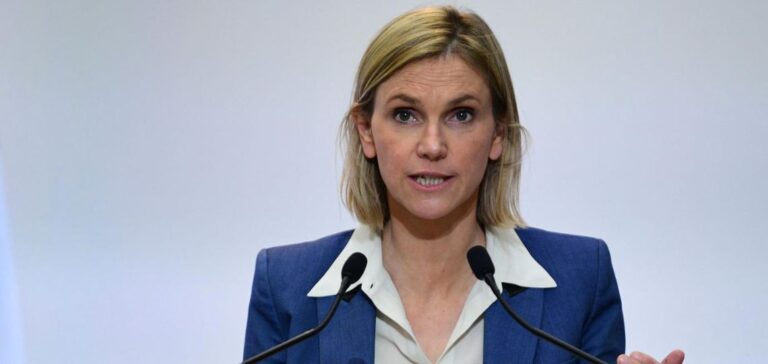The government’s order to prefects to accelerate the processing of renewable energy projects has remained without effect for onshore wind, two months after the release of this circular, lamented Tuesday France Wind Energy (FEE), which represents the sector.
“There has been no acceleration, not even a jolt,” says Michel Gioria, FEE’s general manager.
According to the industry, nearly 2 gigawatts (GW) of projects, the equivalent of two nuclear reactors, are in the final stages of investigation: all that is missing is the final signature of the prefect to launch the work. But without the initials, they won’t come out of the ground this winter, when they could have helped ease the strain on power supplies, Gioria says.
The Minister of Energy Transition Agnès Pannier-Runacher has recently “passed the message to the prefectural body”, says Tuesday at the ministry, where we “follow it closely”. Letters are ready to be sent to certain territories, to “unblock certain projects”, we add.
Other wind projects, less advanced, for an additional 3 GW, are also awaiting prefectural approval to launch the instruction, the public inquiry or the meeting of the departmental landscape committees.
Faced with the energy crisis, four ministers including those of the Interior, Ecological Transition and Energy Transition had asked the decentralized services of the State, in a circular of September 16, to “put in place all the actions required to facilitate and accelerate the processing of files” of installation of renewable energy projects.
France is behind on its own targets, and is the only country in Europe to have missed its 2020 target, which exposes it to a European fine of 500 million euros.
After the senators, the deputies began Monday to examine in committees the bill “on the acceleration of the production of renewable energy”.
The version of the text voted in the Senate is similar to “a tool to stop the energy transition”, in the words of Mattias Vandenbulcke, head of communications at FEE.
The trade association believes in particular that the planning of areas for onshore wind, entrusted by the text to the municipalities and inter-municipalities, must be “connected to the objectives (national development of renewable) and a timetable,” he explains.
The sector is also alarmed by a senatorial provision imposing an assent of the Architect of the Buildings of France for any project at less than 10 km of a historic monument. According to FEE, only a small part of Savoie and Nouvelle-Aquitaine would be open to wind energy. The National Assembly’s Sustainable Development Committee voted on Monday to remove this provision.
The deputies are due to begin examining the text in plenary on December 5.





















